Richest Prize in NZ Literature Awarded
A literary Lioness on top of her game has overcome a world-class field to win the coveted $65k fiction award with her first novel in 13 years.
Written by
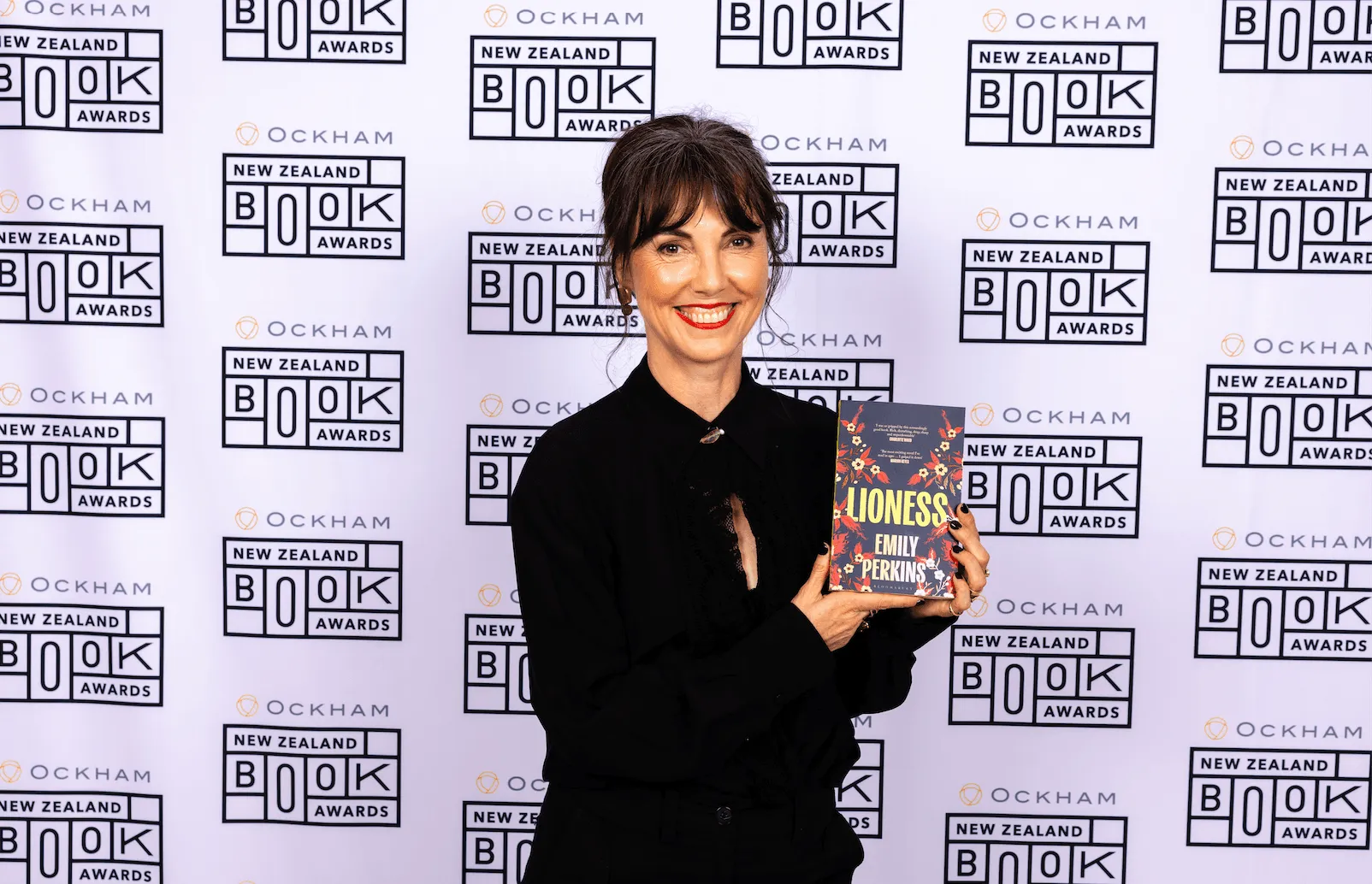
A mid-life masterpiece has thrust Emily Perkins back into the minds and hearts of New Zealand book lovers.
The acclaimed Wellington-based author, playwright and lecturer scored the nation’s richest fiction reward - the $65,000 Jann Medlicott Acorn Prize for Fiction - for her incisive, scathing and witty novel Lioness at the Ockham New Zealand Book Awards 2024 ceremony on Wednesday night (15 May).
She edged out a formidable trio of authors who’ve previously claimed the nation’s top fiction honour - famed Booker-Prize-winning author Eleanor Catton (Birnam Wood), Pip Adam (Audition) and Stephen Daisley (A Better Place).
Perkins is blown away by the honour that capped the awards and told The Big Idea the reaction had a lot to do with the calibre of her fellow finalists.
“First of all I am really surprised .. it was such an amazing year for fiction and there were incredibly strong books on the shortlist. Shocked and very, very grateful.
"It’s a funny thing you don’t think about when you're writing. You think about the reader and hope that they’ll enjoy it and have empathy with it.”
The Ockhams awards night is the glitzy jewel in the crown of the week-long literary love affair that is the Auckland Writers Festival (running until Sunday 19 May).
Class is permanent
Perkins shot to fame in the 1990s while living and writing in England, which created a Gen X mainstream buzz back in her homeland and awards in the UK for her short story collection, Not Her Real Name.
She claimed the Montana NZ Award for Novel About My Wife in 2009. She’s also been a screenwriter, was made an Arts Laureate in 2011 and became a Member of the New Zealand Order of Merit for services to literature. Perkins has been a teacher of creative writing at Victoria University, where she convened the MA Fiction workshop at the International Institute of Modern Letters, and is a mother to three adult children.
It’s quite a CV and she’s at her spellbinding best with her first novel since The Forrests in 2012.
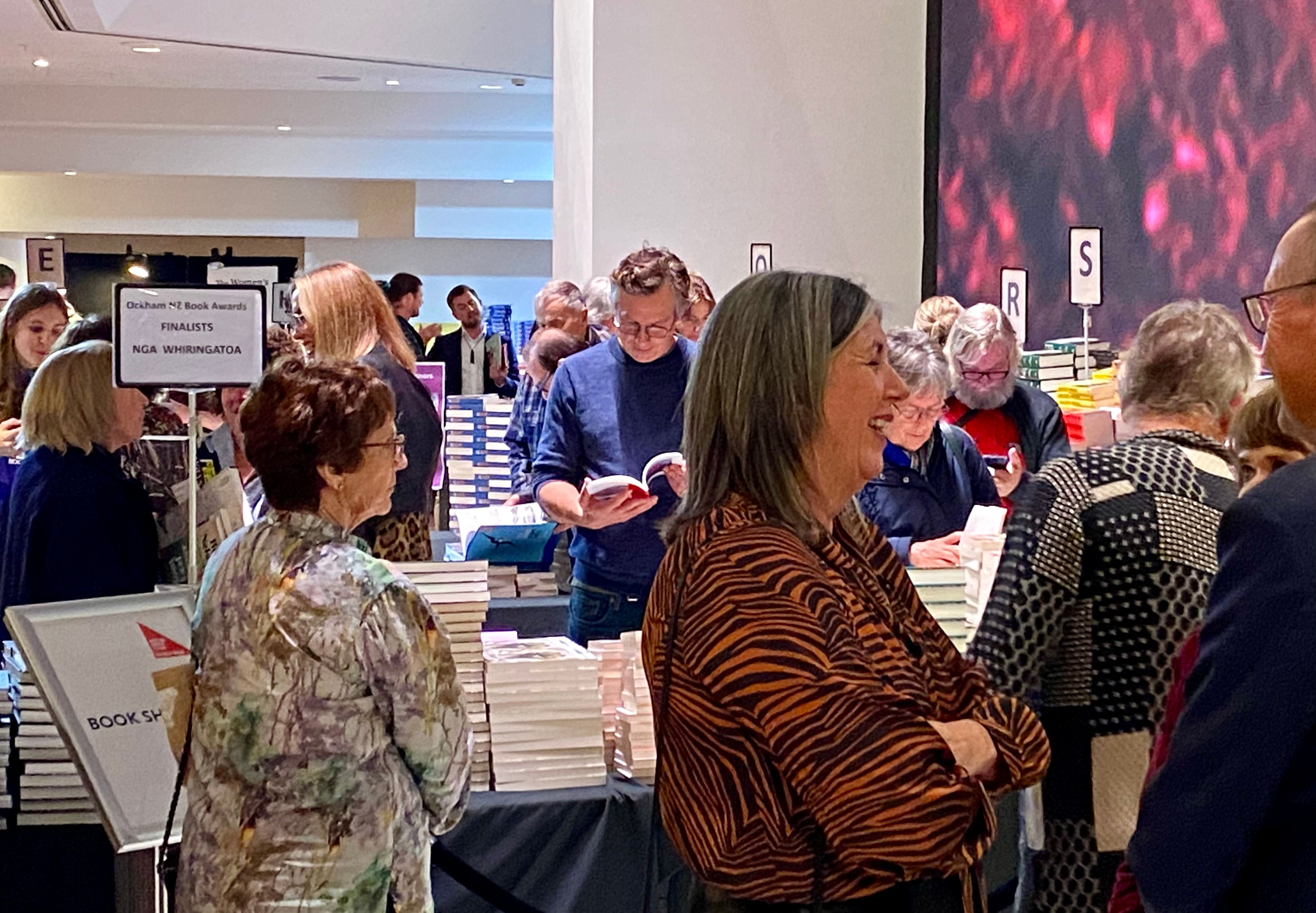
Lioness was described on stage as "a searing and urgent novel crackling with tension and intelligence .. an exploration of wealth, power, class, female rage and the search for authenticity."
‘Perfection … I gulped it down … deep, sharp and unputdownable’ .. are some of the quotes used by British publishers Bloomfield on the book cover to lure readers into its multi-layered web for a very reasonable price of $25 at the Festival book stall outside the Kiri te Kanawa Theatre auditorium in Tāmaki Makaurau.
Political influence
Prime Minister Christopher Luxon was a guest speaker in unfamiliar territory, alongside his Arts, Culture and Heritage Minister, Paul Goldsmith.
They would have been out of their comfort zone with Perkins’ book, which takes aim at the rich and powerful, through the main character Theresa who develops deeply conflicted feelings towards her wealthy husband and their comfortable lifestyle.
“I hope it gives pleasure and provokes in equal measure and it’s about a privileged world. It's assuming that everybody's got a function in life and everybody’s got a conscience.
"I write out of things that trouble me and that I don’t know the answers to.
"It’s important to keep a clear moral compass when I’m writing but I also want to get into the layers that sort through and between and underneath.
"I think the Prime Minister and other politicians got very strong messages from all of the people in the room. There are different ways in politics that belief systems make themselves shown.
"I have politics very much in my mind when I’m writing.”
Her next project will turn the tables … “a novel looking at marriage again - but the husband is at the centre.”
Triumphant talent
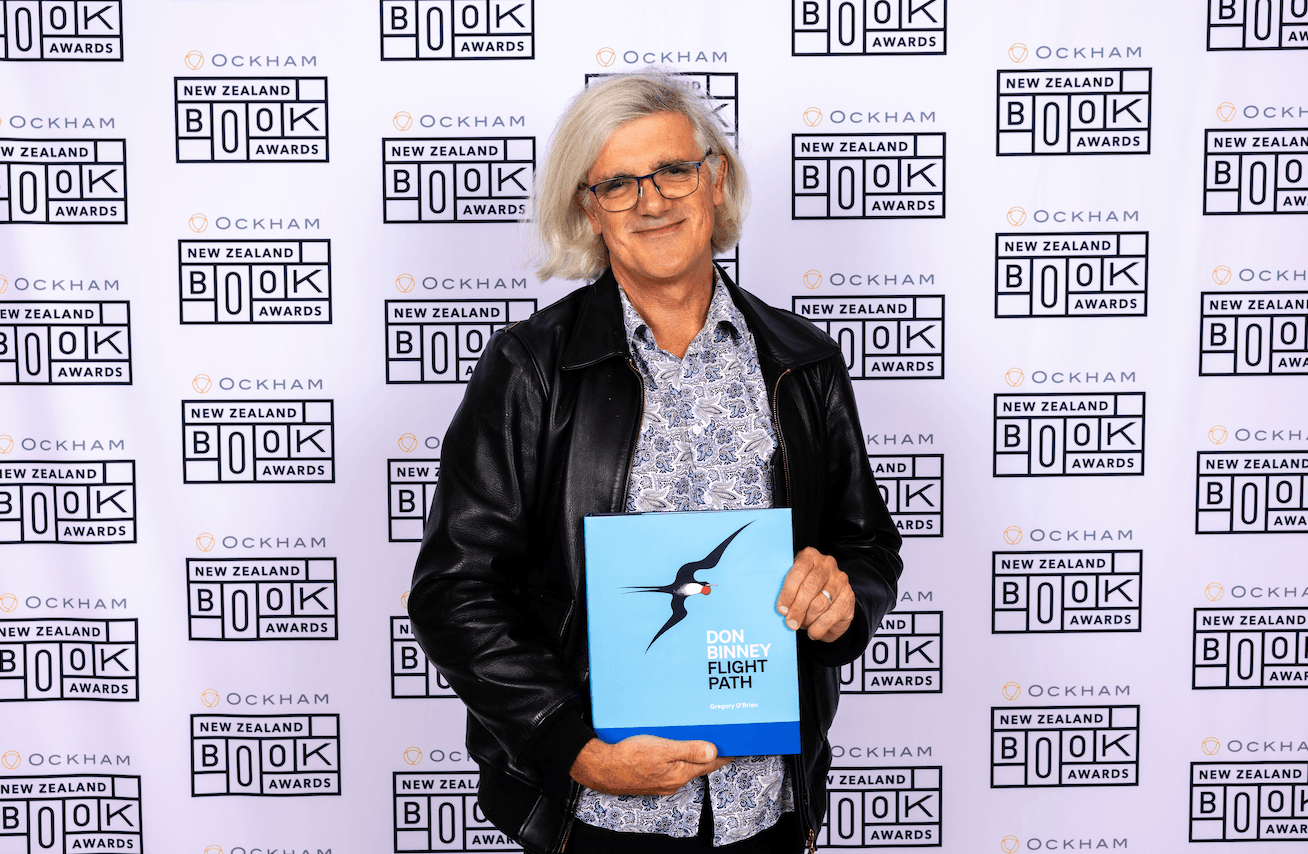
There were $12,000 prizes for each of the other major category winners. The judges and authors were repeatedly glowing in their praise for the depth and quality of the books from the last 12 months.
Prolific writer, painter, poet and art curator Gregory O’Brien returned to the winner’s circle with what he considers his defining work, as the Booksellers Aotearoa New Zealand Award for Illustrated Non-Fiction for his weighty examination of a prolific and difficult artist.
Don Binney: Flight Path took O’Brien six years to compile and complete. It’s a comprehensive tribute to the late artist and ornithologist who became famous in art circles for his unique bird paintings at his beloved Te Henga Bethell’s Beach in the 1960s.
O'Brien states “It’s a monster .. the kind of energy and trust people brought to it. But also his paintings .. they look fantastic. It would be great to see an exhibition at the Auckland Art Gallery in the next few years. They’re very strong paintings but also very articulate, powerful and relevant.”
O’Brien is taking time out after his dedication to the illustrated tribute to Binney, which spans 400 pages and 450 images.
“He was a complicated man. I wasn't trying to mythologise him or simplify it. This is the biggest thing I've ever written .. the biggest thing I’ll ever write - paying my dues to a generation that formed me. I do need to decompress for a year.”
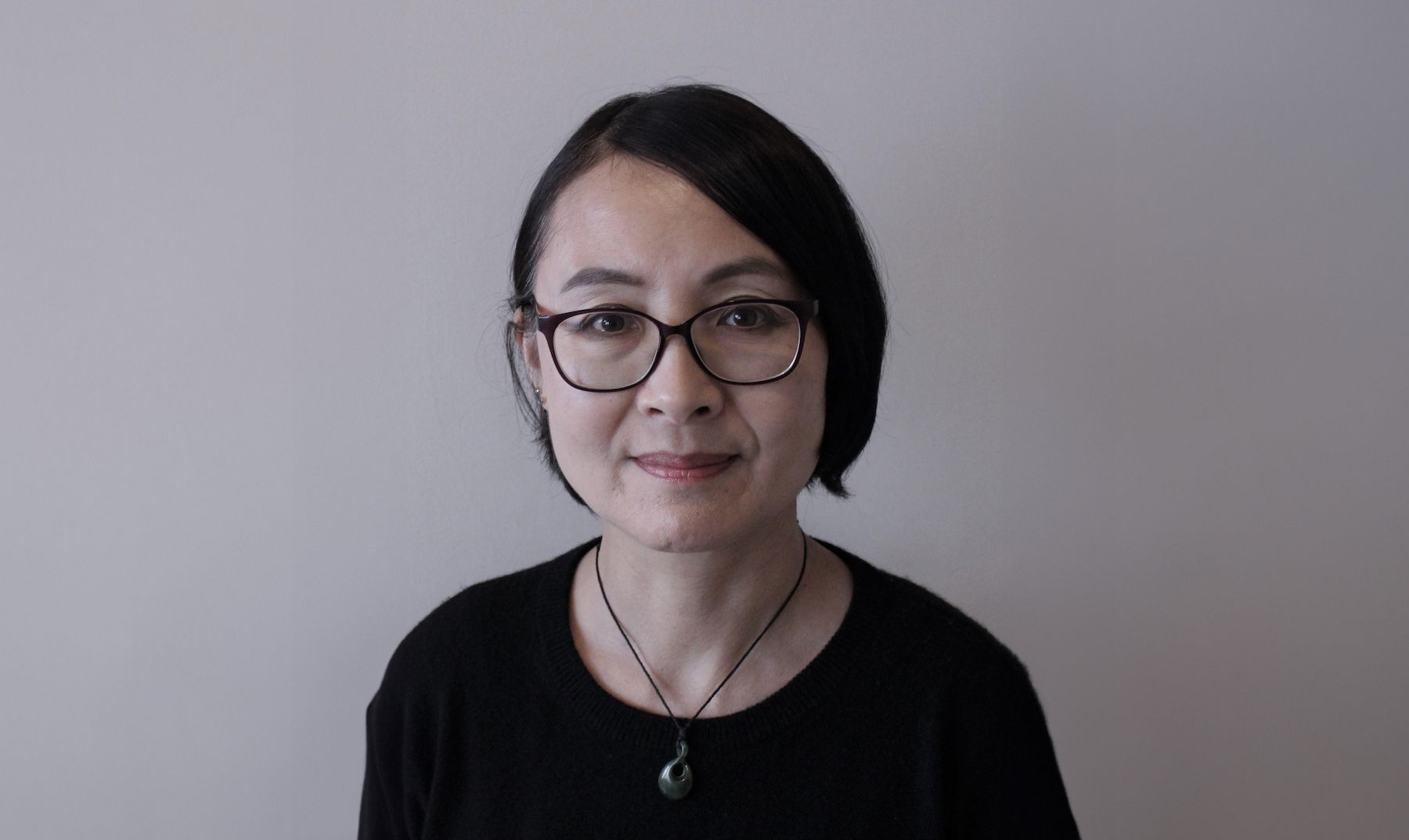
Melbourne-based poet and academic Grace Yee - unable to attend the ceremony - won the Mary and Peter Biggs Award for Poetry for Chinese Fish, three months after her language and genre-blurring collection also won the $100,000 Victorian Prize for Literature.
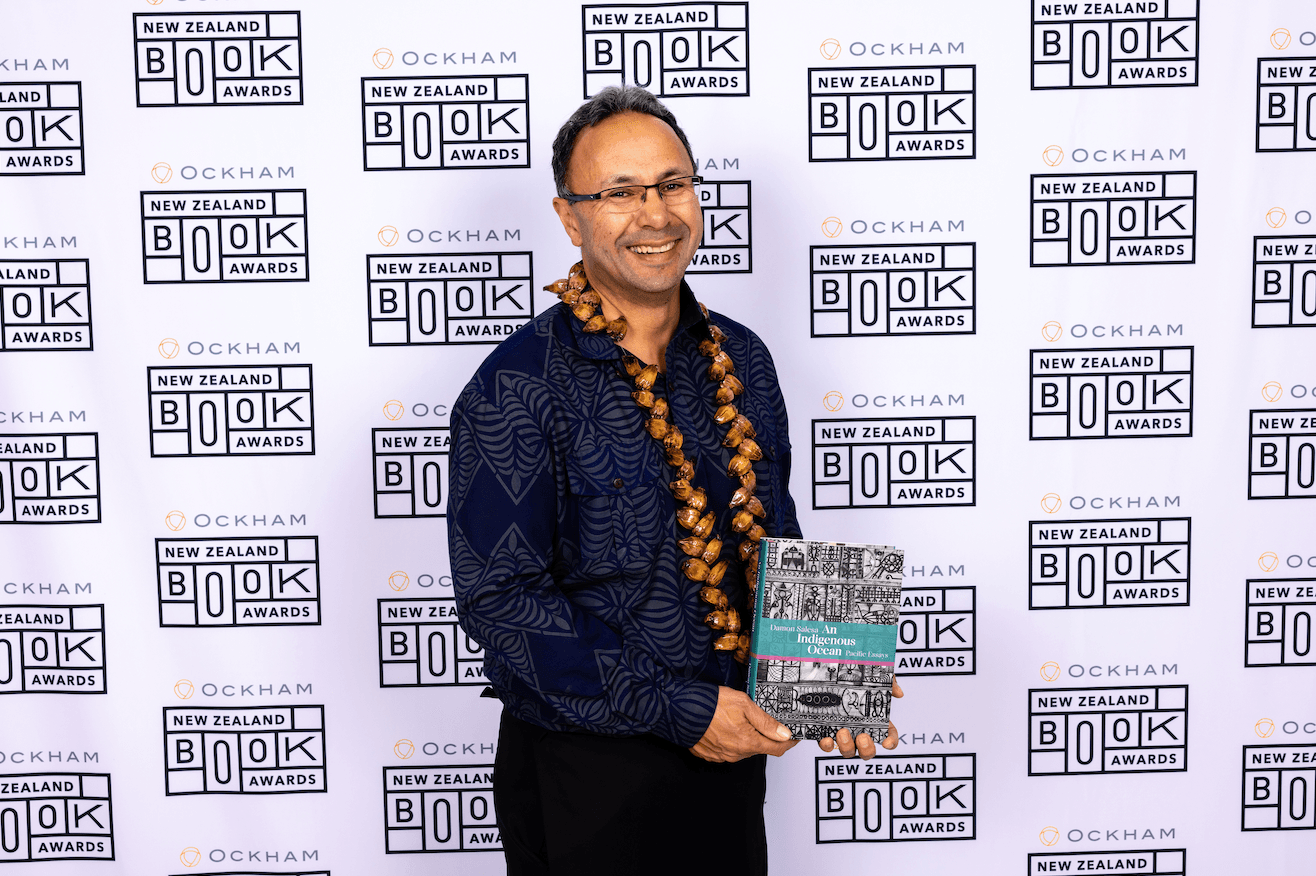
Auckland University of Technology vice-chancellor, scholar and critically acclaimed author Damon Salesa claimed the General Non-Fiction Award for his vast work, An Indigenous Ocean: Pacific Essays - a seminal and deep range of essays covering the Pacific’s ongoing impact worldwide.
Esteemed academic, Waitangi Tribunal member, and Kīngi Tūheitia's ‘Council of Twelve’ member Tā Pou Temara (Ngāi Tūhoe) was presented with the 2024 Te Mūrau o te Tuhi Māori Language Award for Te Rautakitahi O Tūhoe ki Ōrākau (Auckland University Press).
A quartet of Best First Book Awards, sponsored by the Mātātuhi Foundation to the tune of $3,000 each - were also presented at the ceremony, including a photographic record of the working-class sport of rugby league.
Hubert Church Prize for Fiction - Ruin and Other Stories by Emma Hislop (Kāi Tahu) (Te Herenga Waka University Press)
Jessie Mackay Prize for Poetry - At the Point of Seeing by Megan Kitching (Otago University Press)
Judith Binney Prize for Illustrated Non-Fiction - Rugby League in New Zealand: A People’s History by Ryan Bodman (Bridget Williams Books)
E.H. McCormick Prize for General Non-Fiction - There’s a Cure for This by Emma Wehipeihana (Ngāti Tukorehe, Ngāti Porou) (Penguin Random House)